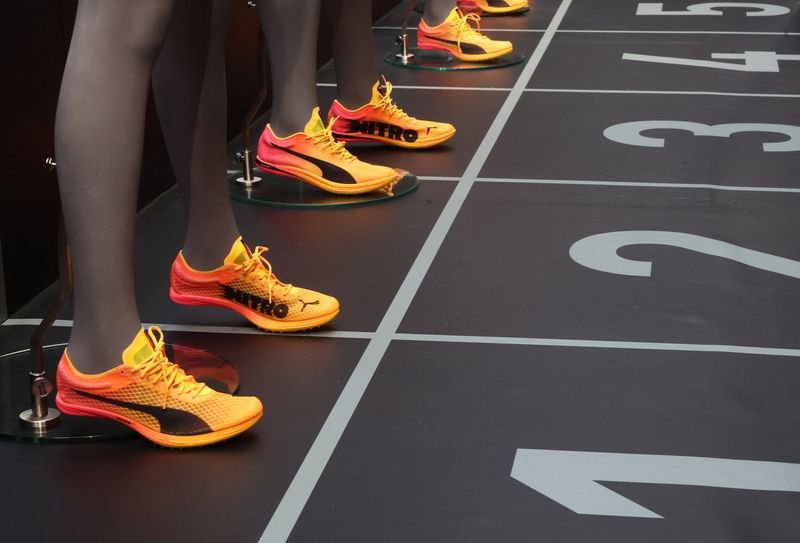By Linda Pasquini and Helen Reid
(Reuters) -German sportswear manufacturer Cougar (OTC:)’s third-quarter sales fell short of expectations on Wednesday due to sluggish demand and as weaker currencies in markets such as Mexico, Argentina and Japan weighed on euro sales.
However, Puma CEO Arne Freundt promised a brighter end to the year, saying China’s Golden Week in October and the run-up to Singles’ Day on November 11 showed “very encouraging” demand.
“Talking to retailers in Europe and the US, I think we are quite confident about demand going into the important shopping season,” he added.
The company was well positioned to respond quickly to tariff increases, Freundt said, citing the potential impact of Donald Trump’s plans to impose tariffs on certain U.S. imports.
Third-quarter revenue grew 5% on a currency-adjusted basis to 2.31 billion euros ($2.48 billion), largely flat from a year earlier but lower than the 2.36 billion euros expected by analysts expected, according to LSEG data.
Puma shares fell 4% in early trading.
Puma sold more football and running shoes this quarter, causing shoe sales to increase by 9.3%. But sales in its largest market, Europe, the Middle East and Africa (EMEA), rose just 0.8%, with Freundt blaming weak consumer confidence in the Middle East.
Sales in the Americas grew by 11.4%, while sales in Asia-Pacific increased by 3%.
Puma launched new global marketing campaigns this year in an effort to better compete with bigger rivals like Adidas (OTC:) and Nike (NYSE:) and the brand is relaunching the Formula 1-inspired “Speedcat” shoe first released in 1999, with the aim of it becoming a major product franchise.
Freundt said demand for low-top sneakers with thin soles is increasing as the brand looks to bring them to the attention of influencers and models.
“I feel very confident in saying that we are leading the low-profile trend,” he told reporters on a call.

Puma aims to sell between 4 and 6 million pairs of Speedcat shoes by 2025, he said.
Puma confirmed its full-year guidance for currency-adjusted sales in the mid-single digits and core profit (EBIT) of between 620 million and 670 million euros, and said its order book from retailers for the remainder of the year was strong.


